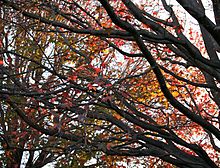“April hath put a spirit of youth in everything.”
"The first of April is the day we remember what
we are the other 364 days of the year."
― Mark Twain
we are the other 364 days of the year."
― Mark Twain
“April is the cruelest month, breeding
lilacs out of the dead land, mixing
memory and desire, stirring
dull roots with spring rain.”
A Year on Planet Earth (4 Seasons)
Midweek Motif ~ April
Where I live in the Northern Hemisphere, Spring is arriving in bulbs and budding trees, somewhat less abundant due to late frost. Where Poets United's Rosemary lives, Fall approaches with lots and lots of rain. Thanks to Rosemary, I include two April poems from Australia.
I always look forward to April!
❤ ❤ ❤
❤ ❤ ❤
Your Challenge: Write a new poem capturing the details of an outdoor scene or day in April.
| April flowers: Daisy and Sweet Pea |
by Sara Teasdale
The roofs are shining from the rain.
The sparrows tritter as they fly,
And with a windy April grace
The little clouds go by.
Yet the back-yards are bare and brown
With only one unchanging tree--
I could not be so sure of Spring
Save that it sings in me.
The roofs are shining from the rain.
The sparrows tritter as they fly,
And with a windy April grace
The little clouds go by.
Yet the back-yards are bare and brown
With only one unchanging tree--
I could not be so sure of Spring
Save that it sings in me.
APRIL this
year, not otherwise
Than April
of a year ago
Is full of
whispers, full of sighs,
Dazzling
mud and dingy snow;
Hepaticas
that pleased you so
Are here
again, and butterflies.
There rings
a hammering all day,
And
shingles lie about the doors;
From
orchards near and far away
The gray
wood-pecker taps and bores,
And men are
merry at their chores,
And
children earnest at their play.
The larger
streams run still and deep;
Noisy and
swift the small brooks run.
Among the
mullein stalks the sheep
Go up the
hillside in the sun
Pensively;
only you are gone,
You that
alone I cared to keep.
 |
| Autumn leaves observed
in Centennial
Park, Sydney. |
April Rains
by Allan Lake
Somewhere a small flood gate opens:
Rainstorm as a goddess
sings Garden in the Rain.
I lose tears throughout,
unable to dam the flow.
This is new, like those flowers
just outside my window,
not the ones near the door
that have given their best.
Their time, my time, the season.
Full moon last night,
its twin on the still lake.
We walked in silence knowing
what we were walking towards
but going forward because
that's all we can do
while walking hand in hand
or alone.
Winter warms to spring;
summer sighs into autumn,
alias fall. I fell, as was my fate.
Mist, mushrooms, musts happen.
A petal, a leaf, a belief –
hosts of smallish wonders
bloom and pass and possibly
circle round again,
nudging the journey
of every sentient spore.
1st published in
Poetry Matters 2016, then Poetica Christi Anthology 2017.
Used with
permission of the poet.
The Small
Poem in Autumn
©
Rosemary Nissen 1990
The small poem of green leaves
and yellow leaves and red leaves
and green leaves turning yellow
and red leaves turning brown.
The small poem of green grass
and grey grass and silver grass
and black grass under shadow
and grasses beige and fawn.
The poem of the magpie’s song
rippling and gurgling in eloquent bursts
between perfect intervals of silence
each finished phrase a variation
extending the one before.
The small poem notes these down
in a half hour between sleep and work
before the clouds change and the sun moves
and the grey grass turns deep brown
and the magpie stops and leaves fall.
from Small Poems of April, Abalone Press
(Three Bridges, Vic.) 1990
Used with the poet’s permission.
Used with the poet’s permission.
❤❤❤
Please share your new poem using Mr. Linky below and visit others in the spirit of the community—
(Next week Sumana’s Midweek Motif will be ~ Books )
